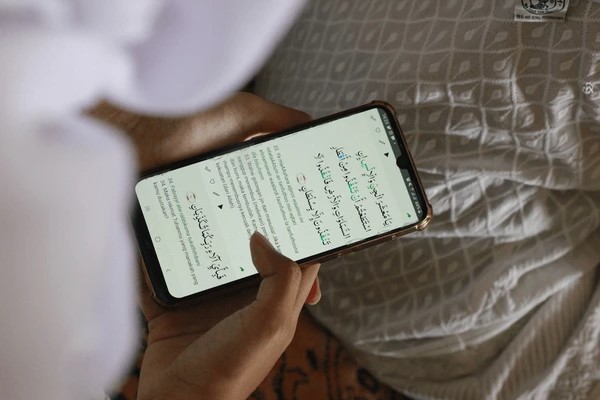
Education is transforming rapidly with the advent of technology. Online education, including Islamic education, is the most important type of change happening in this field. Online Islamic education is a platform that provides students with the facility to enhance their faith. After developing faith, they also learn about discipline and self-control through Islamic principles, which helps them personally and academically.
Self-control and discipline are important parts of Islamic education. These values teach students how to control their emotions, thoughts, and actions. They also help to enhance the values of respect, responsibility, discipline in students, and memorization skills through the online hifz program. Moreover, they also learn the importance of tolerance, dignity, and good manners.
The following text will further explore how online Islamic education helps build students' self-control and discipline.
Students who get online Islamic education or even traditional education, get schedules for attending lectures. They have to manage timetables in both cases. However, in the case of online education, they get the freedom to choose the timings and places accordingly. However, they still have to set a schedule according to the availability of the instructor.
In this way, they learn discipline when they have to set their tasks according to a designated schedule. They learn to manage studies alongside other daily life tasks and responsibilities. This practice of balancing different areas at one time helps to build discipline in students.
Most of the online Islamic courses offered provide a proper framework for the topics to be covered. With the help of the outline, students are given deadlines and goals to achieve in a specific period. In this way, students learn the value of commitment and time. They understand the concept of achieving the goals to be successful. They know that they have to complete the assignments and projects on time to complete the course requirements. From this practice, they learn the concepts of self-control and discipline.
In both online and traditional education, students are assessed after they are done with coursework. This assessment is done in the form of online quizzes, written papers, projects, assignments, etc. When they know that they are accountable for what they have learned, they feel the responsibility and act in a disciplinary way. Moreover, when they know that they will be assessed for what they will perform, they feel motivated to act in a more positive way making them more disciplined.
Many online Islamic education platforms like Mishkah Academy have features to track student progress. In this way, students can see where they stand, and help them to improve self-control to act more wisely.
In the case of traditional Islamic education institutes, students are motivated to make more effort to get the desired results. Teachers are present to guide and motivate the students to achieve goals.
However, in the case of online Islamic studies, some students feel less motivated. Therefore, they need to rely on their inner drive to keep themselves motivated for learning. In this way, students learn to push themselves to put in more effort, set goals, and then achieve them. In this process, they learn both discipline and self-control.
Time management is another important life skill that teaches students how to make themselves disciplined and develop self-control. Online Islamic education helps students to learn time management efficiently.
In an online education system, students often have multiple tasks that they have to manage at the same time. In this way, they learn how to set priorities and what task is the most important to be done first, what to do next, and vice versa. Moreover, online Islamic education gives the freedom to students of choosing the time to study. They can choose according to their priorities but they learn to manage between personal and professional goals through self control in this practice. Most online education platforms provide tools like reminders, calendars, progress trackers, etc that help students to manage their time effectively. All these tools and methods help students to balance their studies with other activities and teach them discipline and self-control.
Most of the online Islamic education platforms develop the skill of self-reflection in students. This means that the students are encouraged to think about the Islamic principles they have learned and how they are implemented in their own lives.
When students reflect on their actions and choices, they become more conscious about their behavior and make better decisions, thus leading to self-control. This practice not only creates discipline but also encourages self-awareness and mindfulness in students.
In online Islamic education, students have to interact with people from different backgrounds and diverse cultures. They have different forums and discussion groups where participants interact and communicate information and ideas about different topics. When students interact with each other, they develop a sense of community and feel supported in case of any problem related to studies. There may be times when they will differ from each other’s viewpoints. However, this sense of being a part of a community encourages them to remain disciplined thus promoting self-control.
Islamic principles taught through online education teach students values like patience, self-restraint, accountability, and alike. These values are the most important aspects of developing faith. When students learn these values and implement them in one’s life promote self-control and discipline.
Online Islamic education is not just a way for students to learn Islamic principles, but a great opportunity to make them learn important life skills like discipline and self-control. By learning these key skills through technology and better tools, students become equipped to cater to the challenges in their personal lives and studies as well. In totality, online Islamic education is not only learning principles but also a way to produce more responsible and self-disciplined individuals.